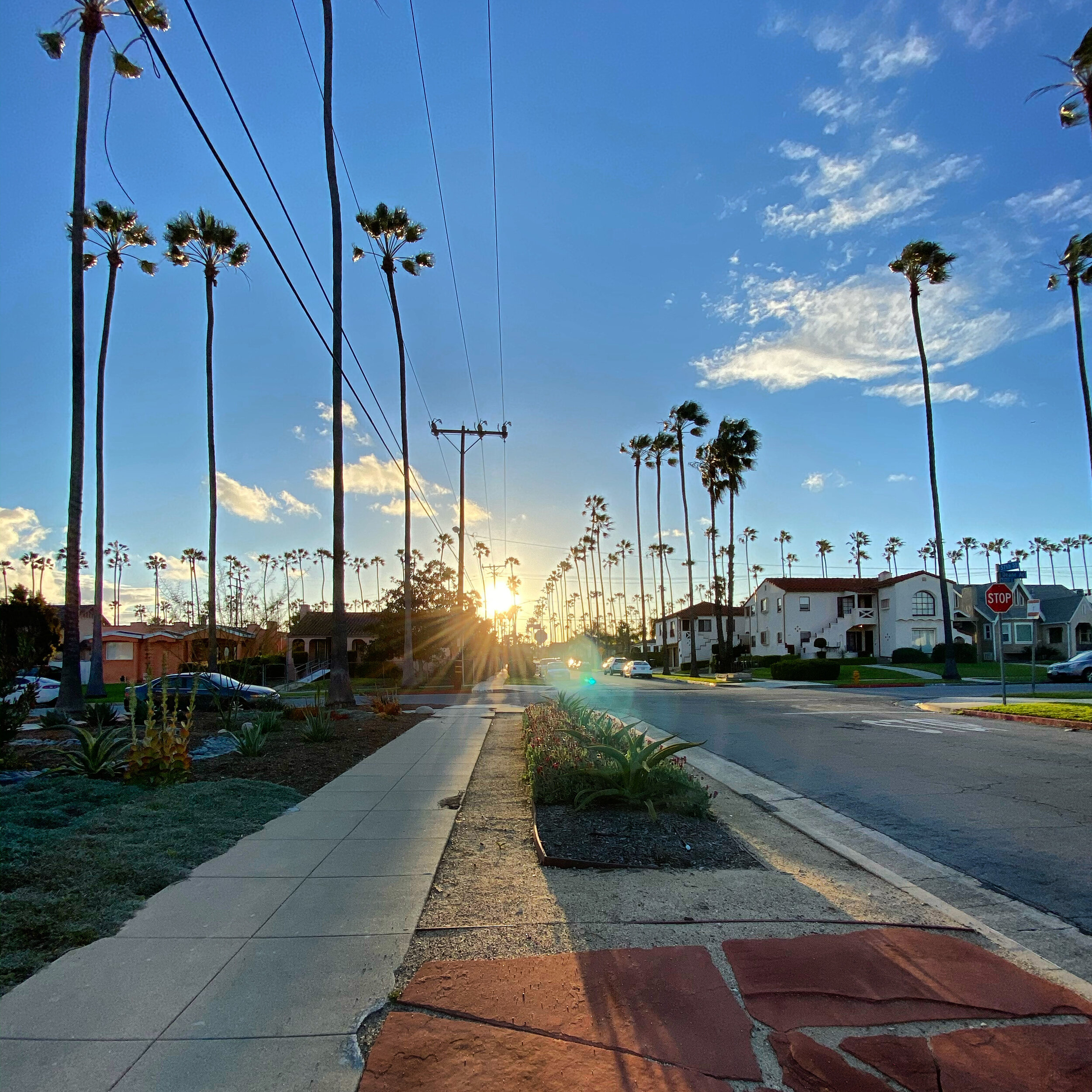Walking in Los Angeles
Two weeks into quarantine, I wrote this.
It’s 5:00 p.m. Our new happy hour.
Husband and I strap on ankle weights and grab dumbbells. I wear my weighted vest. We hoof through the neighborhood, pumping iron as we walk. My arms will be very sexy when Safer-At-Home is over.
Every evening, the hellos from neighbors get warmer. We are mutually enthusiastic, even if we have never before seen each other. We all keep a safe distance.
When my father was a child in Los Angeles, there was a polio outbreak. Only the afflicted were shunned. A quarantine sign was hung on their front door, removed when his two-year-old brother died.
This time, it’s all of us ordered to stay away at home, away from each other. Stop the spread!
“I would do anything to go to a boring conference, get a stupid bag full of swag and wear an ugly name tag for three days,” husband says. “It’d be one thing if we could go out to dinner or to a Clippers game, but this? I can’t take it. And we are only two weeks into it.”
“Do you understand why I used to weep when you came home?” I ask. My old nightly ritual always rubbed him the wrong way.
Yes. Now he does.
A milestone for us.
For so much of my life, I spent every day at home alone because I was too ill to function.
My case of Ehlers-Danlos Syndrome was a life sentence of pain, fatigue and suffering. Unable to work. Unable to do much of anything, except survive one tortured day after another. And for what? I guess I believe in surviving.
At the end of a day, when he came home, he was ready to unwind, wanting to be left alone.
I was desperate to look into another human face and have someone ask me how I was. A human to listen to my answer, even if it was the same as yesterday: I survived another grinding day of nothing. Nothing but agony. Alone.
A life without stimulation and people, lacking the purpose of places to go and things to do, except medical appointments. It doesn’t matter, if you have no energy and all brain fog. You can be too sick and too tired to know if you care.
He never understood that part. The homebound isolation part. Now, today, for the first time, he does. A corona gift.
In the years after I got well, there was so much to learn. Building a life, one with experiences and people I’d never had. Such a great change, it was crushingly stressful. My disabled life haunted me. Years passed before I was comfortable in my own skin again.
And now, I am jobless, again. Stuck at home, again. But this time, I have my health. The disabled me would have wept tears of joy if I knew I would ever be strong enough to strap on weights and hoof around the neighborhood, every single night.
In the morning, I cannot sleep in. Pandemic life is unnerving.
Asleep at 10, awake by 5. I drink coffee and listen to the news, stunned, horrified, fascinated, as the world tries to deal with its unsolvable medical problem.
I never talk about when I was the unsolvable medical problem.
People don’t understand. How could you be born so sick yet not die? There are diseases that have no treatment? How could a person hardly have the strength to shower, yet fight the urge to find relief through suicide? They just think it’s cute that husband took care of me for so many years.
Post pandemic, will it be safe for me to talk about my disabled life?
This morning my neighbor, Ted, crept onto our porch to leave a sack of Meyer lemons he grew. I caught him in the light of the sunrise.
We shout-chatted through the safety of the closed window. It was almost human contact.
I call friends. I attack my chores. My house has never been so clean. What else to do with myself.
Evening happy hour walk is a cleansing from the day.
I’m building up enough strength to carry a musical instrument and march in the next Rose Parade.
We bark back at the neighborhood dogs, matching them in rhythm, tone and cadence.
The air in Los Angeles has never been so fresh and clean
March 31, 2020
We made sorbet with the lemons.


